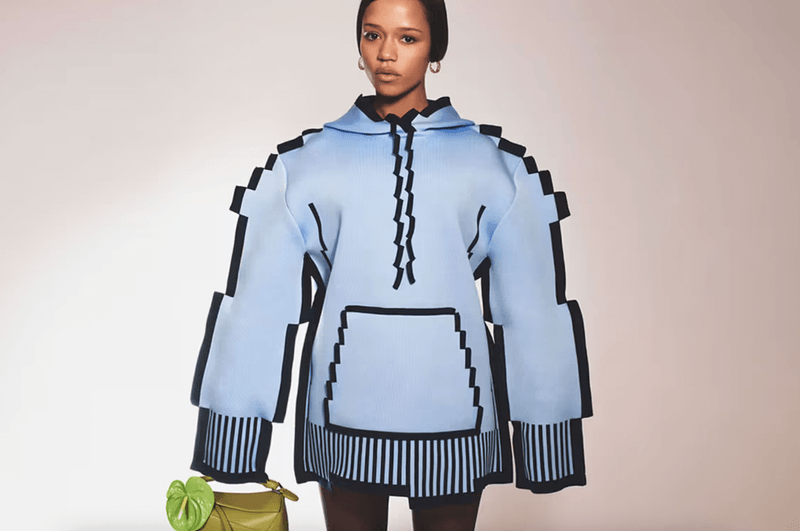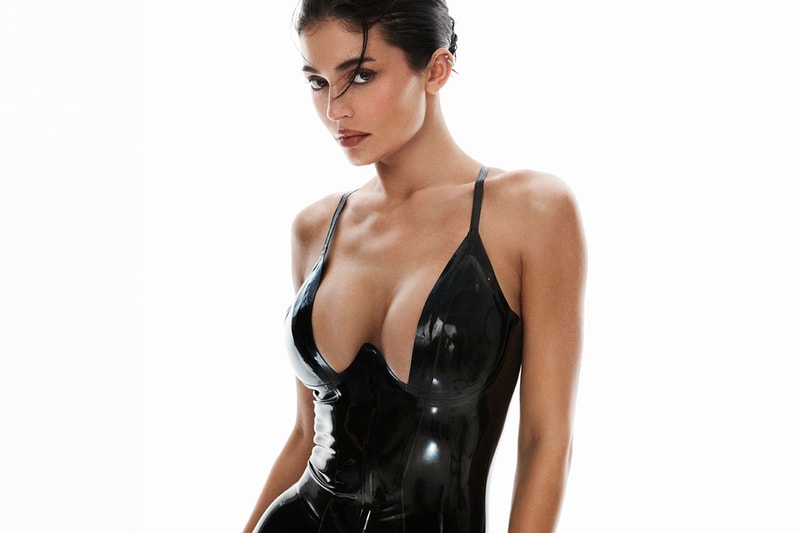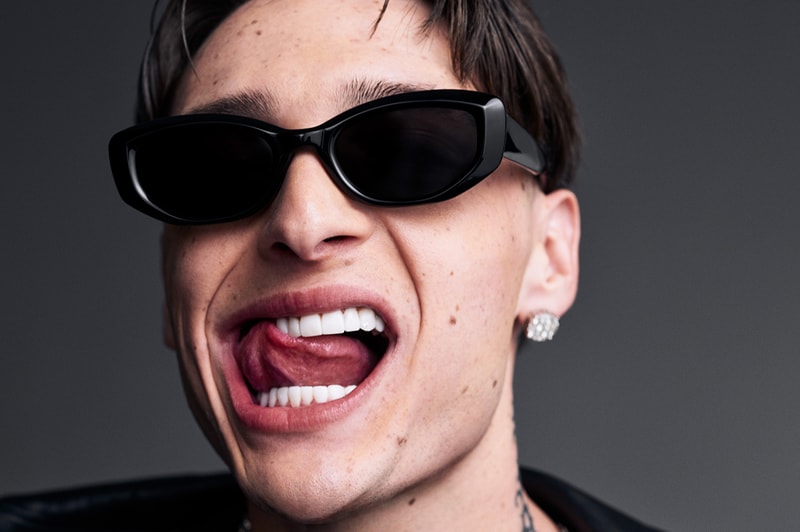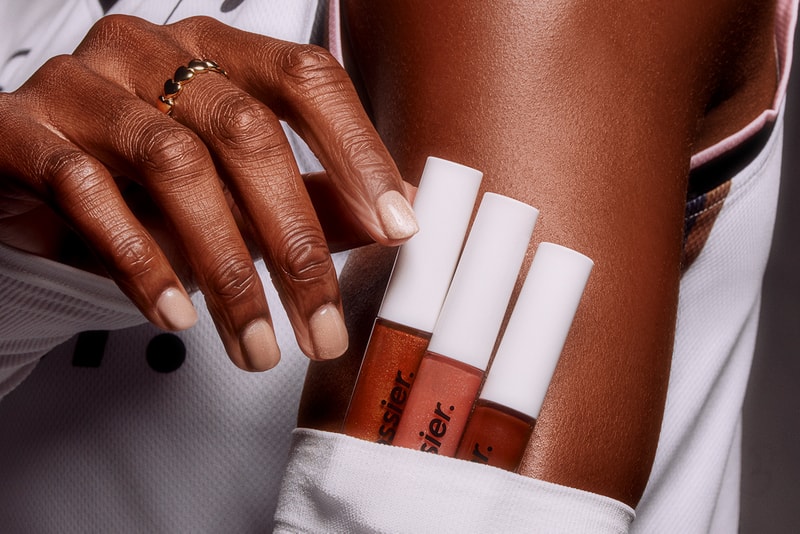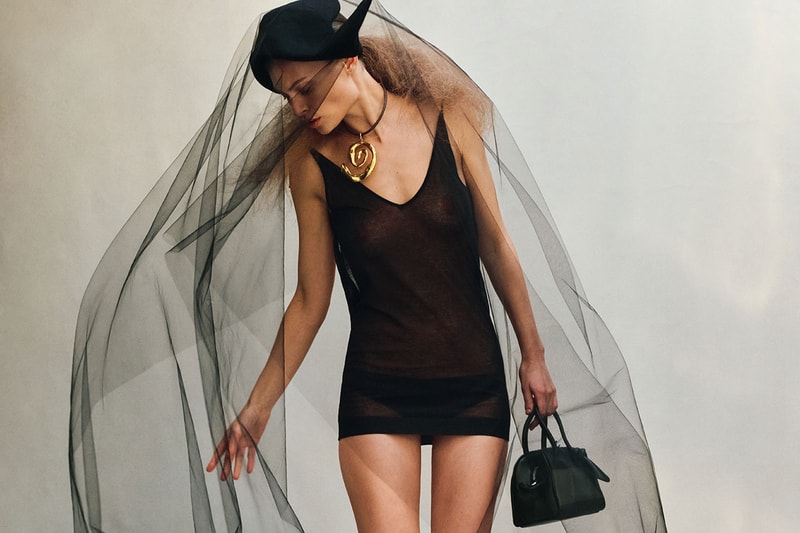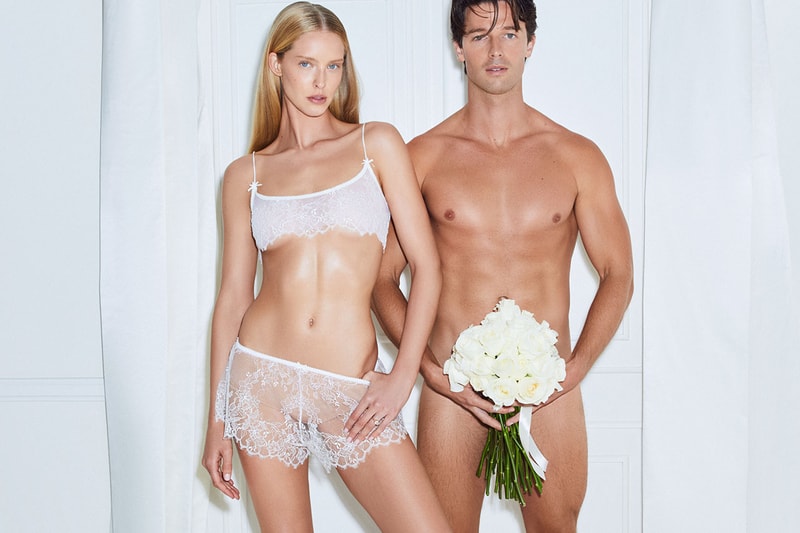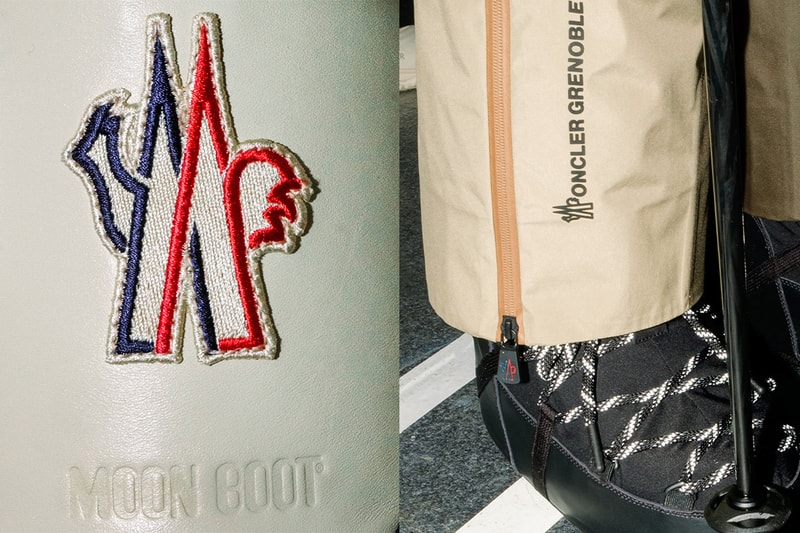The Fashion Blueprint Wants to Help Sustainable, Black-Owned Businesses Grow
info@hypebae.com (Hypebae) Thu, 29 Aug 2024 Hypebae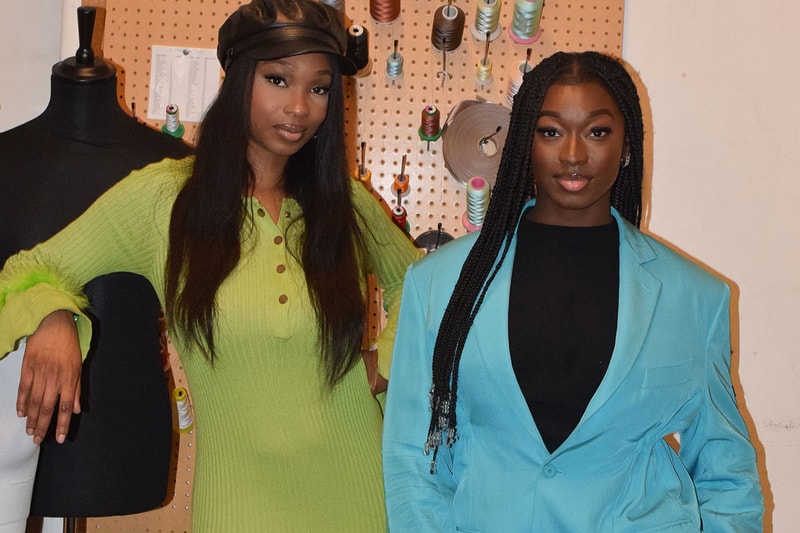
85% of all textiles end up in landfills yearly, equating to 11.3 million tonnes of waste. That statistic didn't sit right with Giovanna Vieira, co-founder of The Fashion Blueprint. "I'm from West Africa, where many garments are dumped," she tells Hypebae. "I know how badly it impacts the local textile economy and water sources; causing displacement, land depletion, generating greenhouse gas emissions and essentially hurting the livelihoods of those who participate in consumerism the least."
It's partly due to this reason that Vieira, along with Misi Ogunlana, decided to create TFB, a consultancy that aims to support emerging and black-owned businesses that share their passion for sustainability. As well as consultancy, their sister brand TFB STUDIOS hopes to directly address the feedback these businesses receive. "Many independent fashion entrepreneurs have a desire to manufacture more sustainably, but lack the right solutions to support them," the duo tells us.
Through 3D garment rendering, AI chatbots and a lot of fashion industry experience, The Fashion Blueprint's goal now is to be a part of that change, creating the infrastructure needed to support more circularity in the industry. We spoke to founders Vieira and Ogunlana to find out more.
Read on for the full interview.

Tell us a bit about how THE FASHION BLUEPRINT came about, what was the catalyst for you
Giovanna: TFB was founded in 2019 as a way to build an ecosystem of independent, black-owned and sustainable fashion brands. Whilst spending over a decade in the fashion industry, working with some of the world's most iconic brands like Selfridges, Louis Vuitton and GANNI, I gained a lot of knowledge about marketing, CRM, fashion tech and how to build more sustainable businesses. I was what you call an intrapreneur, building processes and systems and constantly pitching new ideas and initiatives within these businesses.
As someone who is very conscious about social and climate justice, I always had an issue with the amount of waste that is created in fashion and how lax brands can be when it comes to innovation in that area. 85% of all textiles end up in landfills every year, equating to 11.3 million tonnes of waste. I'm from West Africa, where a lot of the garments are dumped, so I know how badly it impacts the local textile economy and water sources; causing displacement, land depletion, generating greenhouse gas emissions and essentially hurting the livelihoods of those who participate in consumerism the least – a term known as waste colonialism. In the UK, I feel we are best positioned to impact change, as so many of the most influential fashion brands have come from here.
Misi: My journey began when I launched my fashion brand, KIWI&YAM, in 2015. The brand quickly gained international recognition, with exciting brand partnerships and celebrity collaborations. However, as the business grew, I ran into significant challenges in scaling due to the complexities of the fashion supply chain. Despite having a clear vision and abundant creativity, the lack of infrastructure made it nearly impossible to manage and manufacture efficiently.
This experience opened my eyes to a critical gap in the market. Many emerging fashion designers, especially those who are black-owned and committed to sustainability, face similar struggles. Instead of being deterred by the obstacles, I became deeply invested in finding solutions. I realized that the industry needed more than just individual success stories; it needed an ecosystem that supports independent brands from the ground up.
TFB STUDIOS is our way of addressing the challenges I faced, so others don't have to go through them alone. It's about building a better, more inclusive future for fashion, where creativity and innovation are supported by the infrastructure necessary to thrive.

TFB STUDIOS is described as a "circular fashion manufacturing solution." What does the term "circular fashion" mean to you both?
Giovanna: There are enough garments in circulation today for us to not have to make anything new for the next 3 generations. Circular fashion is about minimizing the level of waste that comes with the production and disposal of items. If something isn't biodegradable, we need to think of ways to reinvent or re-look at existing pieces, as opposed to making new ones. This can be done through upcycling, recycling, rental, and resale, as well as designing with durability and repairability in mind.
Misi: At TFB STUDIOS, circular fashion means using materials and processes that minimize environmental impact. We focus on fabric sourcing that prioritizes recycled or sustainable materials, ensuring that the resources we use can either be regenerated or repurposed. Our production processes are designed to reduce waste, from the digital sampling that cuts down on physical prototyping to our upcycling services that give new life to existing garments and materials.
TFB STUDIOS' platform aims to reduce waste and digitize parts of the manufacturing process but how exactly does it work?
Misi: Our TFB STUDIOS platform reduces waste and digitizes key processes along the supply chain. Through 3D garment rendering, we eliminate the need for physical samples, significantly cutting material waste. Our smart chat function can answer personalized questions in real-time, whether a designer needs advice on fabric selection, production timelines, costings or sustainability practices, our AI chat is equipped to deliver tailored responses based on their specific needs.

In the last year, the conversation surrounding AI and its use within fashion has been a polarising one, with some people concerned about it replacing existing jobs, of which there are already few. What's your view on AI as a tool and how has it helped you within the business?
Misi: AI is often seen as a double-edged sword, particularly in industries like fashion where creativity and craftsmanship are highly valued. In our business, AI has been instrumental in enhancing efficiency, streamlining processes, and allowing our team to focus more on innovation and less on repetitive tasks.
For instance, our AI-driven platform automates time-consuming processes like fabric selection and production planning, which not only speeds up the manufacturing cycle but also reduces waste. This frees up designers to concentrate on what they do best—creating unique designs. Additionally, AI enables us to offer more personalized services to our clients, such as real-time support and customized recommendations, which would be impossible to deliver at scale without this technology.
Rather than eliminating jobs, AI has the potential to create new opportunities within the fashion industry by opening up roles that require a blend of creative and technical skills. It allows us to reimagine how fashion is produced, making the process more sustainable and accessible while still preserving the essential human touch that makes fashion an art form.
Giovanna: At TFB, we see AI as a powerful tool that, when approached ethically, can play a significant role in driving innovation and sustainability within the fashion industry. AI has the potential to streamline various aspects of fashion—from design and production to marketing and customer engagement—while also helping brands make data-driven decisions that enhance efficiency and reduce waste.
Fashion companies are usually incredibly stretched when it comes to staff, with individuals having to perform work that is way beyond the scope of their roles. Many of the structural issues we face are caused by the fact that people simply cannot even think of creative solutions to our everyday problems. AI has made our lives easier in many ways. We use it for better resource management, to optimize our supply chains and to help designers create more sustainable garments. AI helps us with predictive analytics, as well as the reduction of overproduction and excess inventory, which are major contributors to environmental waste in the industry. We look at AI as more so of a partner, as opposed to something which should be viewed as a tool to replace human creativity. It should be used to cover mundane tasks, so we can get back to doing "our real jobs."

Who do you hope will use TFB? How do you determine what brands or designers you'll work with?
Giovanna: TFB is a community-centered consulting agency incubating the fashion businesses of the future – those who are starting now or are still small-to-medium sized, but that are innovating in the fashion space and operating more sustainably. We provide them with the community and resources they need to succeed. Our goal is to create change from the inside out, using our expertise to build a more equitable future. We're very much a purpose-driven organization. We value collaboration and are drawn to brands that see the importance of community. A few qualities we usually share with our clients are a commitment to sustainability, social responsibility and a willingness to innovate.
Misi: TFB STUDIOS is designed for a diverse range of users, from emerging independent designers with no previous experience in the industry to established fashion brands looking for more sustainable and efficient production solutions. We hope to empower those who are passionate about creating unique, high-quality fashion without the constraints of traditional manufacturing processes. Our platform is particularly appealing to brands and designers who prioritize sustainability, innovation, and a streamlined production process.
For brands and designers just starting, what's one piece of advice you'd give them about competing in today's landscape?
Misi: I sound like a broken record but my advice will be to just start. Put that idea out there and let your audience find you. Stay true to your unique vision while remaining adaptable. The fashion industry is more competitive than ever, with rapid changes in consumer trends and technology. There is no point trying to catch up, it's best to carve out your lane and build your community.
Giovanna: Don't try to be the next Gucci, Dior or Prada. Instead, focus on building a fashion brand that meets the needs of the world today. The biggest businesses often look at underrepresented communities or independent brands because that is where the real innovation is coming from. When you're just starting, you can be aware of the industry you’re operating in and follow some basic principles but the real magic happens when you leave the rulebook behind and just immerse yourself in creating an authentic brand, which reflects the needs of a specific audience. That's really how you can go from overlooked to influential in today's landscape.

Finally, TFB was created in 2019 and in just a few years, it's already grown so much. What are some of your future plans and goals for the next couple of years?
Giovanna: TFB aims to be the go-to hub for independent, black-owned and sustainable fashion brands. Our goals are to grow our community and show that you can be both purposeful and profitable. We hope to continue to foster innovation and sustainability in the fashion industry by providing entrepreneurs with more community initiatives, workshops, and practical resources and partnering with larger organizations or investors who can support our mission.
Misi: Looking ahead, an exciting development will be to scale our TFB STUDIOS operations in the UK. Ultimately, our vision is to establish TFB as the leading platform for fashion brands looking to innovate, scale, and create responsibly in an increasingly digital world. Additionally, we plan to deepen our commitment to sustainability by building strategic partnerships with leading industry players to drive innovation and create more opportunities for independent designers.

